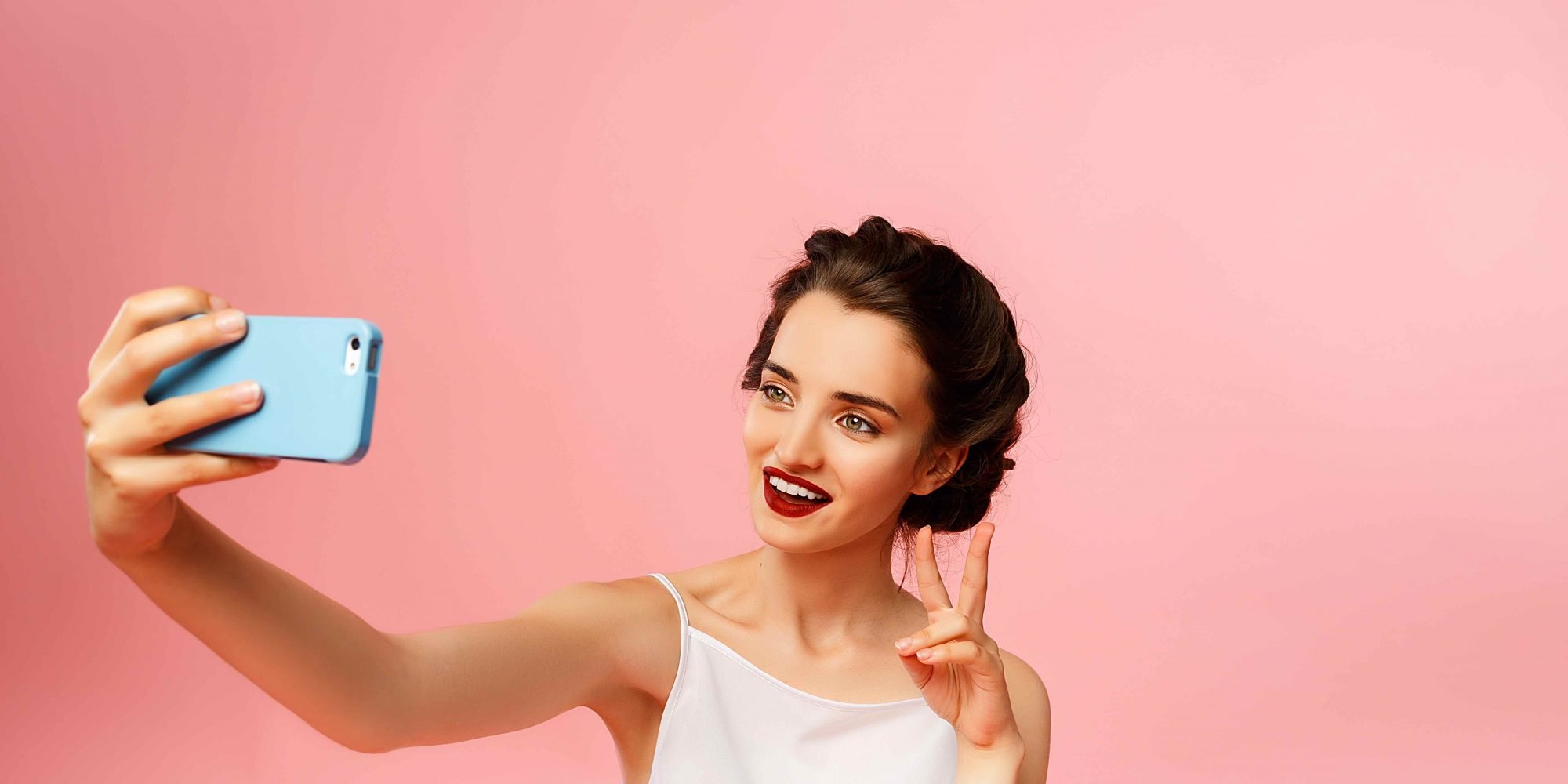
An Inside Look At Indie Beauty Brands’ Experiences Working With Influencers
In this edition of Beauty Independent’s ongoing series posing questions to beauty entrepreneurs, we ask 13 founders and executives: What’s an experience you’ve had working with influencers?
- Lucy Splichal Co-Founder, Cheeky Physique
We've worked with numerous influencers since launching our brand. In our experience, influencers don’t drive a huge amount of direct sales, but they offer other valuable benefits. In the early days, the genuine positive feedback we received from influencers validated our brand and concept.
It helped that we focused on influencers with blogs. Two to three years later, we still get traffic from these blog posts. This content also helps build credibility when prospective customers or accounts search for our brand online. Nothing beats social proof. For us, influencers are worth the investment if the focus is on content with a long shelf life like blog posts or YouTube videos compared to, say, Instagram Stories, which come and go in a flash.
- Alexandra Preston-Morley Co-Founder, Coco & Eve
We love working with influencers and really see their value. We put a great deal of emphasis on finding the right ones to partner with and don't accept just anyone who gets in touch. We also ask those we collaborate with to actually try the masque and for genuine comments in their review. So, if they don't like an aspect of it, then we encourage them to be honest about it.
Since we are a small brand, the majority of our influencers tend to be micro, though occasionally we put budget towards those with a larger influence like our new favourite partner, 90-year-old Baddie Winkle.
- David Simnick CEO and Co-Founder, Soapbox
Pairing these partnerships around in-store sales, online sales, events, etc., has been very helpful in both sales and brand awareness. Our target demographic is looking at these influencers for new products to try, and they're speaking to them directly. From micro- to mid-sized influencers, each partnership can really prove to be beneficial in different forms, i.e., fresh content that showcases people who actually use the products, new followers and, the ultimate goal, new customers.
You don't want to partner with someone who doesn't speak to your target demographic. It's important to make sure that you collab with someone who complements your brand with the brand they've established themselves as an influencer. Also, truly developing relationships with these influencers is very important. You want them to genuinely love the products. We've had success working with influencers from social campaigns to partnering with us at expos and events.
- Holly Harding Founder, O'o Hawaii
The world of influencers can be overwhelming, frustrating and, quite honestly, annoying. Yet, they are crucial. In the beginning, I went the wrong route of paying to be included in influencer boxes sent out by a PR agency. I wasted a good bit of money and product for what resulted in a few 15-second story posts of my product mixed in with 20 other brands with captions like, "Obsessed with all these new products."
I started to feel like if I heard the word “obsessed” used so inauthentically just one more time… Those kinds of posts have no impact. Also, don't choose an influencer that posts anyone and everyone's products just so they can get free stuff. It will have little to no impact.
What I find that does work is utilizing loyal customers of your products that have a decent-sized following and engagement, and offer to send them product. They'll be so excited and their post of your product will be much more authentic.
I also strongly believe in having stunning imagery and using professional models during photo shoots. Many professional models are influencers and will artfully post the brands they represent in their feeds, which also has a greater impact.
Another effective way to use influencers is to partner with a complementary brand. Example: If you sell skincare, partner with a makeup company. You can do giveaways together and/or both post "brands we love" features in your feed. I believe finding influencers that don't just focus on beauty products in every post are far more effective.
- Natasha Jay Founder, Pump Haircare
I have only ever had good experience working with influencers. For me personally, it has helped me create user-generated content for my own social media and advertising and website.
The hard part about working with influencers in haircare is that you can’t instantly measure the return on investment like you can with other digital advertising. We have to treat it as a long-term brand awareness exercise more than a directly measurable call-to-action campaign.
- Kristen Runvik Founder, Lagom Body Co.
Something that's worked well for me is partnering with brands and influencers that share similar values to my company, including natural/healthy lifestyles, and giving back and doing good.
For example, I partnered with GT's Kombucha for an Instagram giveaway, which resulted in over 1,000 new followers, more traffic to my website, more email subscribers, and more engagement on posts. I think there is some residual brand awareness that went along with that, too.
In addition to partnerships like these, I also embrace Stories and the new IGTV for adding a face to the brand. When people see the person behind the scenes, it creates a stronger emotional connection. People like to buy from and support people they know, like and trust, so that's why I'm hopping on Stories, especially live ones, to engage and chat with my community and giving them a behind-the-scenes look as I create their skincare.
- Conny Wittke Founder and CEO, Nügg
Working with influencers is very important to us. As an indie brand with outstanding products, but a very little marketing budget, it’s our primary way to get the word out about our brand.
We have a wonderful community of influencers in our nuggsquad who we share product previews, product launches, contests, etc. with and whom we also learn a lot from.
- Jennifer Freitas Founder and CEO, The Truth Beauty Company
I have found that working with very established influencers can prove effective to grow one's following, yet this can also be very costly to achieve. Additionally, while I have found these partnerships increase my followership numbers, it does not always translate to revenue made through online sales.
There is value to working with micro-influencers as well. I find that they have deep roots in the community, and it is much more of a word-of-mouth kind of advertising return. Meaning, it takes a bit longer, but I have found that I have had an increase in traffic to the bricks-and-mortars as well as online sales due to these smaller partnerships.
- James LA Founder, Niucoco
It’s hit and miss. Influencers mature and grow differently in the digital space. What one is ready to do is something that another might not do. At the end of the day, it’s a sales and marketing channel like any other.
You need to understand what you’re getting out of it and what the goal really is. Is it more sales? More traffic? Assets? There’s a bunch of ways to evaluate if an influencer is right for you, but, if you want to invest in anything, invest in PR.
- Rachel ten Brink CMO and Co-Founder of Scentbird and Deck of Scarlet
Testing out different concepts is very important. What you think of your brand will not be the same as what every consumer thinks. For us, fragrance hacks provides us with a strong platform to share our story and also feature the many different fragrances on Scentbird.
It’s important when utilizing influencers that they’re not only creative in their own way, but they’re also solid in brand messaging. However, every company is different and what works for one brand may not work for you. Don’t get discouraged, test things with a few dollars here and there and, then, narrow your focus to what works.
- Lynette Lovelace Founder and CEO, Lifetherapy
For us, working with influencers is something we are building out with our agency partner. What I will say is that in all marketing initiatives you have to be really specific about how you plan to communicate your messaging. It's important for the Lifetherapy brand that we are engaging with influencers that we know are passionate about the brand and/or speak our language through the content they are posting and brands they are working with.
The consumer journey has not changed, and we believe having several touch points in which consumers see our brand and move through our sales funnel is important. So, we couple social media with paid ads, e-blasts along with brand ambassadors (5,000 and under) and micro influencers (10,000 to 20,000 range) to push customers through that funnel.
While we aren't paying influencers at the moment, it is something we will consider in the future, and the most important part is that we don't just select anyone. She must live and showcase the Lifetherapy brand identity and be someone that, in the day to day, we believe would buy the brand anyway. It's also not about a bunch of followers for us, but engagement and sentiment engagement (comments). Those are things we take into consideration. Not to be discounted is the fact that they create great content that we can then repurpose on our feed.
A lot of brands look to influencers with huge followings or think you can't do a micro program that will be effective. Or,they are like, “We did it and it didn't drive immediate sales,” and while both are relevant dependent on objectives, you need a robust strategy to build that initial funnel.
At this time, we believe brand ambassadors and micro-influencers are more powerful and provide a more diversified reach. An influencer's value is not just in potential sales, it's in complementing the funnel through brand awareness, community building (gaining followers from their followers) and also the content you can get, which saves you costs on hiring a photographer or getting those initial trusted product reviews.
- CHRISTINAH NICOLAISEN Co-Founder, Eleni & Chris
What we have found to be absolute key is that there has to be a great match and fit between the brand’s positioning, the influencer’s profile, and their follower’s interests to create relevant content that converts well and gets the return on investment.
- Matthew Schirle CEO and Founder, SkinKick
We like working with micro-influencers. They are more than willing to generate content, and they often become long-term customers after using the products.
If you have a question you’d like Beauty Independent to ask beauty entrepreneurs, please send it to editor@beautyindependent.com.







Leave a Reply
You must be logged in to post a comment.